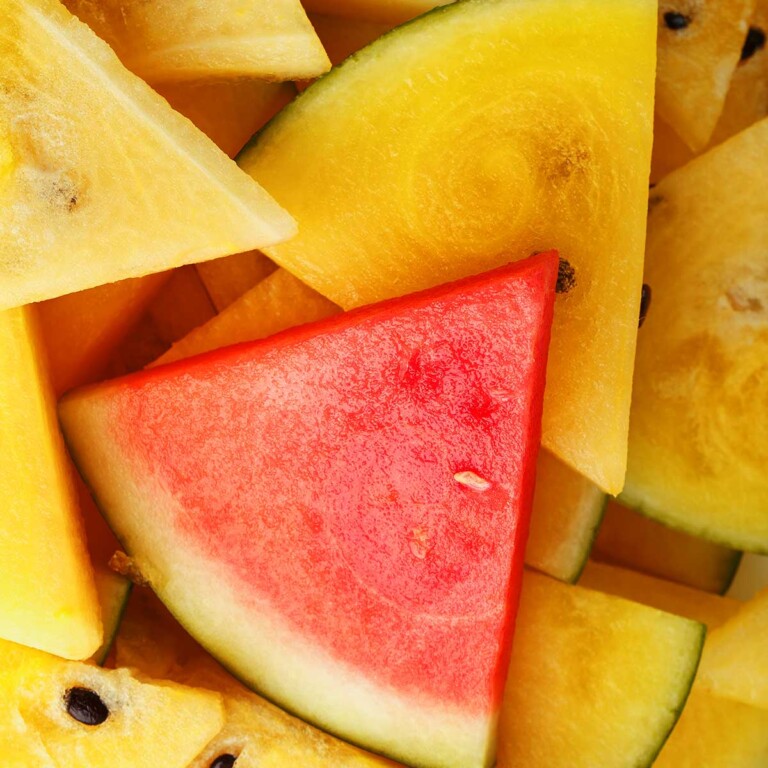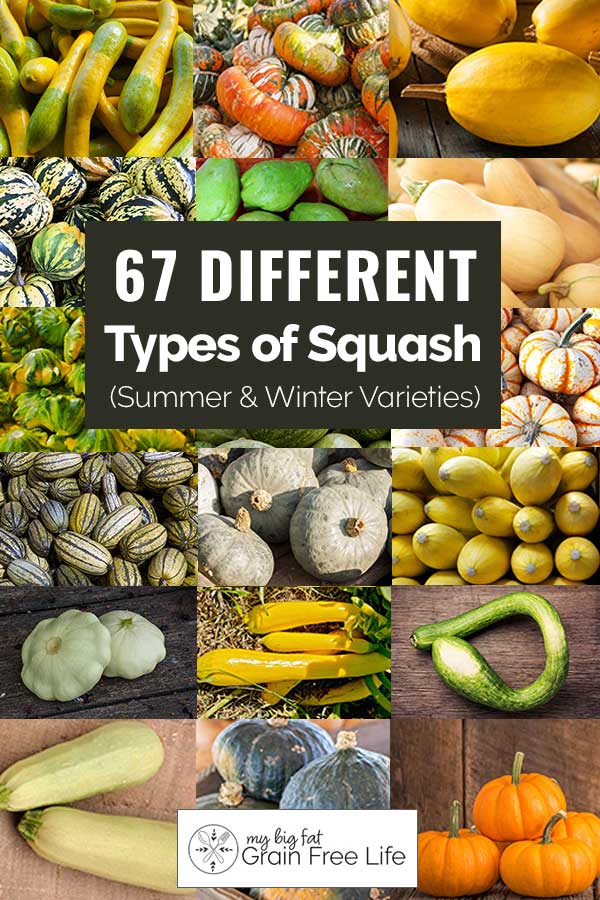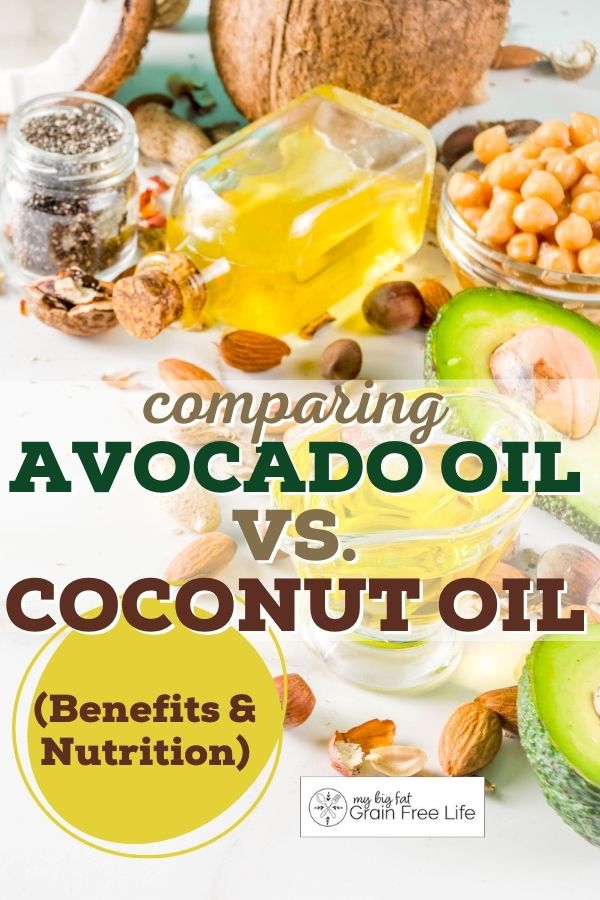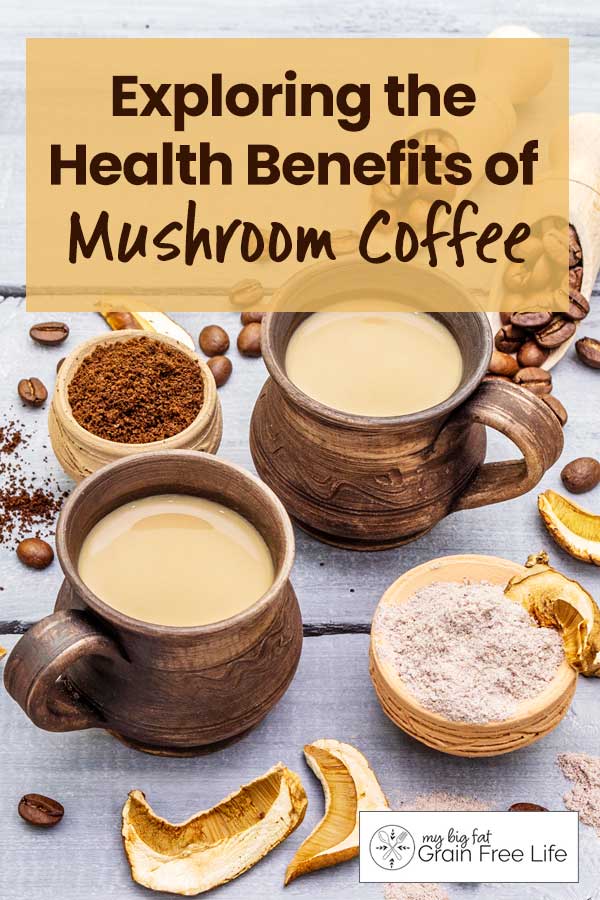The Best Natural Sweeteners and Refined Sugar Substitutes
This post may contain affiliate links. If you make purchase after clicking a link, I may receive a commission at no extra cost to you.
Last Updated on October 19, 2023
There are so many different natural sweeteners to choose from, but which one is best? While everyone might have their own opinions on natural sweeteners and the best refined-sugar substitutes, we listed out all the options for you so you could explore them in one place.
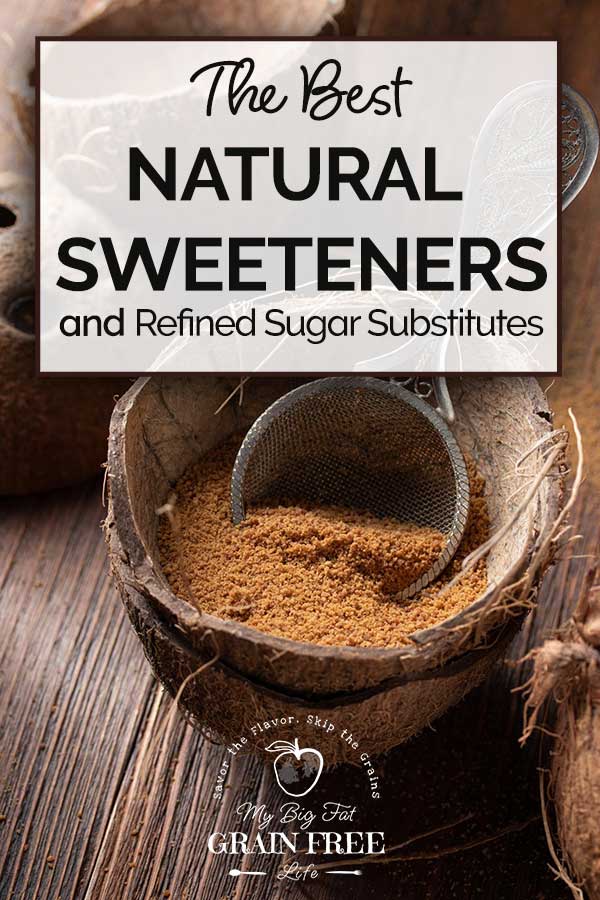
Natural Sweeteners
If you’re looking for healthier alternatives to refined sugar, then you’ve come to the right place. When I first ventured into a healthy lifestyle and learned how bad table sugar was, I decided to go all-in and learn everything I could about natural sweeteners and good sugar substitutes.
We will explore various types of natural sweeteners such as honey, maple syrup, stevia, and coconut sugar, but that’s not all! You’ll discover their unique flavors and learn how they can be used as substitutes for traditional white sugar in baking or cooking.
You’ll also learn about the negative effects of refined sugar and which artificial sweeteners to avoid.
Why Use Natural Sweeteners
Not only are sugar alternatives delicious additions to your recipes, but many also contain essential vitamins and minerals that contribute positively to your overall health.
Additionally, we will discuss the glycemic index (GI) of different natural sweeteners and its impact on blood sugar levels. Understanding how each option affects glucose levels is crucial if you’re managing conditions like diabetes or simply trying to maintain stable energy throughout the day.
Whether you’re following a specific diet plan, such as the autoimmine protocol, or just want to reduce your intake of processed sugars for general wellness reasons, our aim is to empower you with knowledge about healthier options available out there.

Health Benefits of Natural Sweeteners
We all love a little sweetness in our lives, but it’s no secret that excessive consumption of refined sugar can have negative effects on our well-being.
That’s where natural sweeteners come in – they offer a way to add sweetness to our favorite foods and beverages while providing nutritional benefits.
Benefits of Using Natural Sweeteners
- Natural sweeteners provide essential nutrients and antioxidants that are absent in refined sugar.
- Using natural sweeteners can help regulate blood sugar levels more effectively than refined sugar.
- Natural sweeteners often have a lower glycemic index compared to refined sugar, making them suitable for people with diabetes or those watching their blood sugar levels.
- They promote better digestion by supporting the growth of beneficial gut bacteria.
- Unlike refined sugar, natural sweeteners do not contribute to tooth decay and cavities when consumed in moderation.
- They contain minerals like zinc, iron, calcium, and potassium that support overall health and wellbeing.
- Natural sweeteners may reduce inflammation in the body due to their antioxidant properties.
- Consuming natural sweeteners instead of refined sugar can help control cravings for sugary foods and drinks.
- They have a richer flavor profile compared to plain white sugars.
- Natural sweeteners like coconut palm sugar or date paste add fiber content which aids in maintaining healthy digestion.
- Switching from processed sugars to natural alternatives has been shown to improve skin complexion.
- Some studies suggest that natural sweeteners could potentially aid weight management when used mindfully as part of a balanced diet.
- These options tend to be less processed than traditional table sugars resulting in higher nutrient density per serving size.
- They provide an energy boost without causing the same crashes as refined sugar due to their slower release into the bloodstream.
- Using natural sweeteners in recipes can enhance the overall nutritional value of meals and treats, making them a better choice for your health.
What Are Sugar Substitutes?
Sugar substitutes, also known as natural sugars, are alternative ingredients that can be used to replace regular sugar in our diets. These sugar alternatives offer a similar level of sweetness but have fewer calories and do not impact blood sugar levels as much as traditional sugar does.
Natural Sweeteners
This comprehensive list of natural sweeteners can help you learn what sugar substitutes will work best for you. Whether you are looking for a healthier sweetener for coffee, a substitute for sugar in baking, or a sweetener to make a simple syrup, your options are pretty extensive!
Agave Nectar
Agave nectar is a natural sweetener derived from the agave plant. It is made by extracting and filtering the sap of certain species of agave plants, primarily found in Mexico.
Sweetness of Agave
Agave nectar is sweeter than table sugar, so you can use less of it in recipes while still achieving the desired level of sweetness. It also dissolves easily in both hot and cold liquids, making it convenient for use in various recipes.
Potential Benefits of Agave Nectar
The potential benefits of using agave syrup include its low glycemic index, which means it has a minimal impact on blood sugar levels compared to refined sugar.
This makes it a suitable option for individuals who need to manage their blood sugar levels, such as those with diabetes or people following a low glycemic diet.
Disadvantages of Using Agave
There are some disadvantages to consider when using agave nectar. Despite being perceived as natural, most commercially available varieties go through extensive processing that involves heating and enzymatic treatments. This process may reduce some of its nutritional value and lead to higher fructose content.
It’s important to note that due to its high fructose content, excessive consumption of agave nectar should be avoided.
How to Use Agave Nectar in Recipes
To replace refined sugar with agave nectar in recipes, you can generally substitute one cup of granulated white or brown sugar with 2/3 to 3/4 cups of agave nectar.
Since liquid sweeteners add more moisture than dry ones like granulated sugar, you may want to slightly decrease other liquid ingredients in your recipe accordingly.
👉Check out: Maple Syrup Vs Agave
Allulose
Allulose is a low-calorie sweetener that can be used as a substitute for refined sugar in recipes. It is a naturally occurring sugar found in small amounts in certain fruits and foods like wheat, figs, raisins, and maple syrup.
Sweetness of Allulose
Allulose has a taste similar to sugar, but with some subtle differences. It is often described as having a clean and sweet flavor, without any bitter or artificial aftertaste.
While it does provide sweetness, allulose is approximately 70% as sweet as regular table sugar (sucrose). Additionally, it lacks the same level of caramelization that sugar brings when heated.
Potential Benefits of Allulose
The potential benefits of allulose include its ability to provide sweetness without adding many calories to your diet. It has about 90% fewer calories than regular sugar and does not raise blood sugar levels significantly, making it suitable for people with diabetes or those following a low-carb diet.
Moreover, allulose does not contribute to tooth decay since it doesn’t promote the growth of harmful bacteria in the mouth like regular sugar does.
Disadvantages of Allulose
There are some potential disadvantages of allulose to consider. Allulose may cause gastrointestinal discomfort if consumed in large quantities because our bodies cannot fully digest it. Additionally, while allulose is safe for most people when consumed in moderation, excessive intake could lead to laxative effects.
How to Use Allulose in Recipes
To use allulose as a replacement for refined sugar in recipes, you can typically swap it on a one-to-one basis. However, keep in mind that allulose might have different properties compared to traditional sugars such as caramelizing differently or affecting texture slightly.
Beet Sugar
Beet sugar is a type of sweetener that is derived from sugar beets. It is made by extracting the juice from the beets, which is then processed and refined to produce a granulated sugar.
Sweetness of Beet Sugar
Beet sugar is very similar to table sugar, also known as sucrose. Both types of sugars have a sweet taste and can be used interchangeably in most recipes.
Potential Benefits of Beet Sugar
One potential benefit of beet sugar is its natural origin. Unlike some other sugars, it does not undergo extensive chemical processing or bleaching. Additionally, beet sugar has a slightly higher mineral content compared to refined cane sugar.
Disadvantages of Beet Sugar
Beet sugar has a similar nutritional profile as regular table sugar and should still be consumed in moderation. It contains calories without providing any significant nutrients beyond carbohydrates.
How to Use Beet Sugar in Recipes
To use beet sugar as a replacement for refined cane sugar in recipes, you can usually substitute them in equal amounts. However, keep in mind that beet sugar may have a slightly different flavor profile than traditional white granulated sugar due to its natural origins.
Blackstrap Molasses
Blackstrap molasses is a thick, dark syrup that is derived from sugar cane or sugar beet juice. It comes from the third boiling of the sugarcane or sugar beet juice during the refining process. This concentrated form contains more nutrients and minerals compared to other types of molasses.
Sweetness of Blackstrap Molasses
It has a robust and slightly bitter flavor with hints of caramel. Blackstrap molasses is not as sweet as table sugar.
Potential Benefits of Blackstrap Molasses
There are several potential benefits associated with blackstrap molasses. Firstly, it is rich in iron, calcium, magnesium, and potassium which can support bone health and help prevent anemia.
Additionally, blackstrap molasses contains antioxidants that can aid in reducing oxidative stress in the body. Moreover, its low glycemic index makes it suitable for individuals who need to manage their blood sugar levels.
Disadvantages of Blackstrap Molasses
Its strong flavor may not appeal to everyone’s taste buds and might overpower delicate flavors in certain recipes. Furthermore, due to its high mineral content, excessive consumption may lead to imbalances for individuals on specific diets or taking certain medications.
How to Use Blackstrap Molasses in Recipes
To replace refined sugar with blackstrap molasses in recipes, follow these instructions:
- Start by substituting 1 cup of white or brown sugar with ¾ cup of blackstrap molasses.
- Reduce liquid ingredients (such as milk or water) by about ¼ cup.
- Adjust other sweeteners such as honey or maple syrup if necessary.
- Experiment gradually until you achieve your desired level of sweetness.
Remember that baking times may vary when using blackstrap molasses instead of refined sugar due to differences in moisture content.
Brown Rice Syrup
Brown rice syrup is a natural sweetener that is commonly used as an alternative to refined sugar. It is made by fermenting cooked brown rice and then breaking down the starches into simple sugars.
As the name implies, brown rice syrup comes from brown rice, which is a whole grain that undergoes minimal processing. It does not contain any artificial additives or preservatives, making it a relatively healthier option compared to refined sugar (as long as you can have grains).
Sweetness of Brown Rice Syrup
Brown rice syrup is not as sweet as table sugar. It has a milder flavor with subtle caramel notes. This makes it a suitable choice for those who prefer less intense sweetness in their recipes.
Disadvantages of Brown Rice Syrup
It’s important to note that brown rice syrup still contains calories and carbohydrates like any other sweetener. Its high carbohydrate content may not be suitable for individuals on low-carb diets or those with diabetes who need to carefully monitor their blood sugar levels.
Additionally, brown rice syrup scores a whopping 98 on the glycemic index, so if you are concerned about blood sugar levels, opt for a different sweetener.
How to Use Brown Rice Sugar in Recipes
To use brown rice syrup as a replacement for refined sugar in recipes, you can generally substitute 1 cup of white granulated sugar with 1 ¼ cups of brown rice syrup. However, keep in mind that the moisture content and texture may be slightly different when using this substitution.

Cane Sugar
Raw cane sugar is a minimally processed form of sugar that retains some of the natural molasses and minerals found in sugarcane.
This unrefined sugar comes from pressing or crushing sugarcane stalks to extract the juice, which is then evaporated to remove excess water and create raw sugar crystals.
Sweetness of Cane Sugar
It is slightly less sweet than table sugar but still provides a satisfying sweetness to recipes.
Potential Benefits of Cane Sugar
Raw cane sugar contains small amounts of minerals such as calcium, iron, and potassium due to its minimal processing. Additionally, it has a lower glycemic index compared to table sugar, meaning it causes slower blood glucose level spikes after consumption.
Disadvantages of Cane Sugar
Due to its higher moisture content compared to refined white sugar, adjustments may be needed in recipes where dry ingredients play an important role. Additionally, while raw cane sugar does have some trace nutrients, these amounts are relatively small and should not be relied upon as significant sources of nutrition.
How to Use Can Sugar in Recipes
To use raw cane sugar as a replacement for refined white sugar in recipes:
- Substitute an equal amount of raw cane sugar for granulated white or brown sugars.
- Be aware that the texture may differ slightly due to the larger grain size of raw cane crystals.
- Adjust cooking times if necessary since baked goods made with raw cane can take longer to brown.
Chicory Root Syrup
Chicory root syrup is a natural sweetener made from the roots of the chicory plant. The syrup is derived from the inulin found in chicory root through a process of extraction and concentration.
Inulin is a type of dietary fiber that cannot be broken down by human digestive enzymes, making it calorie-free and suitable for those watching their calorie intake.
Sweetness of Chicory Root Syrup
It has a pleasant, mildly sweet taste that is comparable to table sugar but with a slightly caramel-like flavor.
Potential Benefits of Chicory Root Syrup
One of the main benefits of using chicory root syrup as a sweetener is its low glycemic index. This means that it doesn’t cause sharp spikes in blood sugar levels like refined table sugar does.
Additionally, chicory root syrup contains prebiotic fibers which can support gut health by promoting the growth of beneficial bacteria in the intestines. These fibers also help improve digestion and regulate bowel movements.
Disadvantages to Chicory Root Syrup
Excessive consumption may still contribute to overall caloric intake and potentially lead to weight gain if not consumed in moderation.
Using Chicory Root Syrup in Recipes
To use chicory root syrup as a replacement for refined sugar in recipes, you can generally substitute it on a one-to-one basis. However, due to its liquid consistency and slight caramel flavor profile, adjustments might be needed when baking or cooking with delicate flavors where texture plays an important role.

Coconut Sugar
Raw coconut sugar is a natural sweetener made from the sap of coconut palm flowers.
Sweetness of Coconut Sugar
Coconut sugar (or coconut palm sugar) has a caramel-like flavor with subtle notes of butterscotch. Raw coconut sugar is comparable to table sugar, so you can use it as a 1:1 replacement in recipes.
Potential Benefits of Coconut Sugar
Unlike refined white sugar, raw coconut sugar retains some nutrients and minerals such as iron, zinc, calcium, and potassium. It also has a lower glycemic index than table sugar, which means it causes a slower rise in blood glucose levels.
Disadvantages of Coconut Sugar
Raw coconut sugar still contains calories and carbohydrates like any other sweetener. Therefore, moderation is key when incorporating it into your diet.
Using Coconut Sugar in Recipes
To use raw coconut sugar in recipes as a substitute for refined white sugar, simply replace the same amount called for in the recipe with raw coconut sugar. Keep in mind that its darker color might affect the appearance or taste of lighter-colored dishes slightly.
Date Sugar
Date sugar is a natural sweetener derived from whole dates that have been dehydrated and ground into powder form.
Sweetness of Date Sugar
Date sugar is pretty much as sweet as table sugar. It has a distinct caramel-like flavor and coarse texture.
Potential Advantages of Date Sugar
Unlike refined white sugar, which goes through extensive processing and bleaching, date sugar retains the nutritional benefits of dates, including fiber, potassium, magnesium, and antioxidants.
One potential benefit of using date sugar is its low glycemic index (GI). This means that it causes a slower rise in blood glucose levels compared to table sugar. As a result, it may be a better option for individuals who are managing their blood sugar levels or following a low-glycemic diet.
Disadvantages of Date Sugar
There are some drawbacks to consider when using date sugar. Due to its coarse texture, it doesn’t dissolve easily in liquids like coffee or tea. Additionally, it can affect the texture and moisture content of baked goods due to its higher fiber content.
Using Date Sugar in Recipes
To use date sugar as a replacement for refined sugar in recipes:
- Replace 1 cup of white or brown table sugar with 1 cup of date sugar.
- Adjust liquid ingredients slightly if needed since date sugar can absorb moisture more readily.
- Be mindful that baked goods may have different textures due to the coarser grain size of date sugar.
- Consider adding small amounts at first and tasting as you go until you achieve your desired level of sweetness.

Jaggery
Jaggery is a type of unrefined sugar that is commonly used as a sweetener in many Asian countries. It is made by boiling sugarcane juice or palm sap until it solidifies into blocks or cones.
Sweetness of Jaggery
When it comes to sweetness, jaggery falls between brown sugar and molasses. It has a rich, caramel-like flavor with hints of toffee and butterscotch. Compared to table sugar, jaggery provides a more complex taste profile.
Potential Benefits of Jaggery
Jaggery offers several potential benefits due to its natural processing method. It retains some nutrients like iron, calcium, potassium, and antioxidants from the sugarcane or palm sap.
Additionally, jaggery has a lower glycemic index compared to refined white sugar, which means it causes a slower rise in blood glucose levels.
Disadvantages of Jaggery
Jaggery still contains calories and should be consumed in moderation if you’re watching your overall sugar intake. Excessive consumption can contribute to weight gain and dental issues.
Using Jaggering in Recipes
To use jaggery as a replacement for refined sugar in recipes, you can grate or chop it into smaller pieces before adding it directly into your dish during cooking or baking processes.
Alternatively, you can dissolve grated jaggery in warm water first to create a liquid sweetener that can be easily incorporated into various recipes.
Monk Fruit Extract
Monk fruit extract is a natural sweetener derived from the monk fruit, also known as Luo Han Guo. The extract is made by crushing the fresh or dried fruits and then collecting their juice. This juice undergoes a process to remove impurities and concentrate its sweetness into a powdered form.
Sweetness of Monk Fruit Extract
It is significantly sweeter than table sugar, with zero calories and no impact on blood sugar levels. It’s one of the high-intensity sweeteners, so you’ll want to pay close attention to how much you use.
Compared to table sugar, monk fruit extract can be up to 150-200 times sweeter. This means that you only need a small amount of it to achieve the same level of sweetness in your recipes.
Potential Benefits of Monk Fruit as a Natural Sweetener
Firstly, monk fruit extract does not raise blood sugar levels, making it suitable for people with diabetes or those following a low-sugar diet.
Secondly, since it has zero calories, it can be helpful for weight management goals. Lastly, unlike artificial sweeteners, monk fruit extract is considered natural and doesn’t have any known negative health effects.
Disadvantages of Monk Fruit Extract
Its intense sweetness may take some getting used to if you’re accustomed to the taste of regular sugar. Additionally, due to its high potency compared to table sugar, you’ll need less quantity in recipes which might affect texture or volume adjustments.
Not all monk fruit sweeteners are created equal! Be sure to read the ingredients carefully for additives and flavorings.
Using Monk Fruit Extract in Recipes
To use monk fruit extract as a replacement for refined sugar in recipes:
- Start by substituting about half the amount of white or brown granulated sugar called for in your recipe.
- Taste test along the way and adjust accordingly based on your desired level of sweetness.
- Keep in mind that since monk fruit extract doesn’t caramelize like traditional sugars do; baking time may vary slightly.

Raw Honey
Raw honey is a natural sweetener that comes directly from beehives.
Sweetness of Honey
Raw honey is sweeter than table sugar, so you can use less of it to achieve the same level of sweetness in your recipes. Raw honey has a rich and distinct flavor profile that adds depth to dishes.
The color and taste of raw honey can vary depending on the flowers that bees collect nectar from. It can range from light golden to dark amber, with flavors ranging from mild and floral to bold and robust.
Potential Benefits of Honey
Honey contains antioxidants, enzymes, vitamins, and minerals that are beneficial for our health. It may have antibacterial properties and help soothe sore throats or coughs. However, it’s important to note that these potential benefits are more pronounced in raw honey compared to processed varieties.
Disadvantages of Honey as a Sweetener
On the flip side, raw honey should be consumed in moderation due to its high calorie content. Overconsumption can lead to weight gain or an increase in blood sugar levels for individuals with diabetes.
How to Use Honey in Recipes
To replace refined sugar with raw honey in recipes, keep in mind that it is sweeter than sugar. As a general rule of thumb, you’ll want to use about half as much raw honey as you would sugar.
Additionally, since liquid sweeteners add moisture when used instead of dry ones like granulated sugar, consider reducing other liquids by approximately 1/4 cup per cup of raw honey added.
Remember not to expose raw honey too high temperatures during cooking or baking as this may diminish some of its nutritional value. Instead incorporate it into dressings, marinades or drizzle over desserts after they’ve been cooked or baked.
You might enjoy reading these posts:
- 20 Health Benefits of Wildflower Honey
- Buckwheat Honey Vs Manuka Honey (Side-by-side Comparison)
Sorghum Molasses
Sorghum molasses is a sweet syrup made from the juice of sorghum plants, a pseudo grain. It has been used as a traditional sweetener in many cultures around the world. Although originating in Africa, today it is commonly produced in the southern United States.
Sweetness of Sorghum Molasses
Sorghum molasses has a distinct flavor that is similar to caramel or honey, but with its own unique taste. In terms of sweetness, sorghum molasses is less sweet than table sugar, which can make it a good option for those looking to reduce their sugar intake.
Potential Benefits of Sorghum Molasses
There are several potential benefits of using sorghum molasses instead of refined sugar. First, it contains more nutrients and minerals compared to white sugar, including iron, calcium, potassium, and antioxidants.
Additionally, because sorghum molasses is less processed than refined sugar, it retains some of its natural compounds and may have a lower glycemic index.
Disadvantages of Sorghum Molasses
Sorghum molasses has a stronger flavor profile that may not work well in all recipes or dishes. Some people may find the taste too overpowering or unfamiliar if they are accustomed to the mild sweetness of white sugar.
Using Sorghum Molasses in Recipes
To use sorghum molasses as a replacement for refined sugar in recipes, you can generally substitute it at an equal ratio (1:1). However, keep in mind that this substitution may affect both the taste and texture of your final dish due to differences in moisture content and sweetness level.

Stevia Extract
Stevia extract is a zero-calorie sweetener derived from the stevia rebaudiana plant, which is native to South America. The leaves are harvested and processed to obtain the sweet compounds present in stevia.
It is known for its high sweetness and zero-calorie content, making it an attractive alternative to table sugar.
Sweetness of Stevia Extract
Stevia extract is approximately 200-400 times sweeter than table sugar. This means that you only need a small amount of stevia extract to achieve the same level of sweetness as a larger quantity of sugar.
Potential Benefits of Stevia
One potential benefit of using stevia extract is its ability to provide sweetness without adding calories or raising blood sugar levels.
Disadvantages to Stevia
Some people may find that it has a slightly bitter aftertaste, especially when used in larger quantities. Additionally, since it is much sweeter than sugar, adjusting recipes can be tricky and may require experimentation to get the desired taste.
It can trigger allergies in some individuals because it’s a ragweed allergy food. That means, if you are allergic to ragweed, it’s advisable not to consume stevia when ragweed pollen is high.
Using Stevia in Recipes
To use stevia extract as a replacement for refined sugar in recipes, start by understanding its potency compared to table sugar. As mentioned earlier, it is significantly sweeter than sugar, so you will need less of it.
A general guideline is that 1 teaspoon of powdered or stevia extract in liquid form can replace 1 cup (or around 200 grams) of granulated white or brown sugar.
When substituting with powdered stevia extracts in baking recipes that rely on bulk and texture provided by traditional sugars such as cane or beet sugars—like cookies or cakes—it’s best to also add another ingredient like applesauce or mashed banana for moisture and structure preservation during baking.
Yacon Syrup
Yacon syrup is a natural sweetener derived from the yacon plant, which is native to South America. It has gained popularity as a healthier alternative to table sugar due to its low glycemic index and potential health benefits.
Sweetness of Yacon Syrup
Yacon syrup is slightly less sweet than table sugar. While table sugar has a sweetness level of 100, yacon syrup ranges from 70 to 80 on the sweetness scale. This means that you may need slightly more yacon syrup compared to table sugar when using it in recipes.
Potential benefits of Yacon Syrup
One of the major advantages of yacon syrup is its low glycemic index (GI). The GI measures how quickly carbohydrates are digested and raise blood sugar levels. Yacon syrup has a very low GI, making it suitable for people with diabetes or those looking to manage their blood sugar levels.
Additionally, yacon syrup contains fructooligosaccharides (FOS), which act as prebiotics and support gut health by promoting the growth of beneficial bacteria in the digestive system. It also provides some essential minerals such as potassium and calcium.
Disadvantages of Yacon Syrup
Firstly, although it’s lower in calories than traditional sugars, it should still be used in moderation as part of a balanced diet. Secondly, excessive consumption may cause gastrointestinal discomfort such as bloating or diarrhea due to its high FOS content.
Using Yacon Syrup in Recipes
To use yacon syrup as a substitute for refined sugar in recipes:
- Replace each cup of granulated white or brown sugar with about three-fourths cup of yacon syrup.
- Reduce other liquids called for in your recipe by approximately one-fourth cup for every one cup of yoacn syurp used.
- Adjust cooking times and temperatures accordingly since baking with liquid sweeteners can affect texture and browning.

Natural Syrups
These natural syrups make great, healthier sweeteners.
Pure Maple Syrup
Maple syrup is a sweet, viscous liquid that is made from the sap of maple trees. It primarily comes from North America, particularly regions where maple trees are abundant such as Canada and parts of the United States.
The process involves tapping into the tree’s sap during early spring when it flows most abundantly. The sap is then boiled down to remove excess water, resulting in thickened maple syrup.
Sweetness of Pure Maple Syrup
It has a distinct and delicious flavor with hints of caramel and woodsy notes. In terms of sweetness, maple syrup is comparable to table sugar, but its unique taste adds depth to recipes.
Potential Benefits of Maple Syrup
The health benefits of maple syrup are quite astounding. It contains trace amounts of minerals like manganese and zinc which are beneficial for overall health. Additionally, unlike refined sugar which offers empty calories, maple syrup provides small amounts of antioxidants that may have anti-inflammatory properties.
Disadvantages of Maple Syrup
While maple syrup does have some advantages over refined sugar, it still needs to be consumed in moderation due to its high calorie content. Excessive intake can contribute to weight gain or affect blood sugar levels negatively.
Using Maple Syrup in Recipes
To replace refined sugar with maple syrup in recipes:
- Use ¾ cup (180ml) of pure maple syrup for every 1 cup (200g) of granulated white or brown sugar.
- Reduce any other liquids in the recipe by about 3 tablespoons per cup (240ml) of added maple syrup.
- Adjust baking time slightly since adding more liquid might require longer cooking times.
- Consider reducing oven temperature by around 25°F (15°C) as using liquid sweeteners like maple syrup may cause browning faster than regular sugars.
Date Syrup
Date syrup is a natural sweetener made from dates. It originates from the Middle East and North Africa, where dates are abundant. The process of making date syrup involves cooking down fresh or dried dates until they form a thick liquid consistency.
Sweetness of Date Syrup
Date syrup is slightly sweeter than table sugar, so you may need to use slightly less when substituting it. It has a rich, caramel-like flavor and is commonly used as an alternative to refined sugar in recipes.
Potential Benefits of Date Syrup
Date syrup retains some nutrients found in dates such as fiber and antioxidants. Additionally, it has a lower glycemic index compared to table sugar, meaning it causes a slower rise in blood sugar levels after consumption.
Disadvantages of Date Syrup
Due to its high fructose content, excessive consumption of date syrup should be avoided for those with certain health conditions like diabetes or insulin resistance. Date syrup also contains calories similar to other sweeteners, so moderation is key.
Using Date Syrup in Recipes
To replace refined sugar with date syrup in recipes:
- Start by substituting 1 cup of white or brown sugar with ¾ cup of date syrup.
- Reduce the liquid ingredients (such as milk or water) by around ¼ cup for every cup of date syrup used.
- Adjust the baking time if needed since the moisture content can affect the final texture.

Lowest Natural Sweeteners on the Glycemic Index
If managing blood glucose levels is important to you, becoming familiar with the glycemic index is a good idea! The glycemic index (GI) is a measure of how quickly carbohydrates in food raise blood sugar levels. It ranks foods on a scale from 0 to 100 based on their effect on blood glucose levels compared to pure glucose, which has a GI value of 100.
- Low GI: Foods with a GI value of 55 or less are considered low glycemic index foods. They have a slower and more gradual impact on blood sugar levels.
- Medium GI: Foods with a GI value between 56 and 69 fall into the medium glycemic index range. They have a moderate impact on blood sugar levels.
- High GI: Foods with a GI value between 70 and 100 are classified as high glycemic index foods. They cause rapid spikes in blood sugar levels.
You can manage your insulin levels by using natural sweeteners that have a lower glycemic index. By comparison, table sugar has a medium glycemic index of 65.
| Sweetener | GI Score | Carbs | Calories |
|---|---|---|---|
| Agave Nectar | 11-19 | 16g | 60 |
| Allulose | 0 | .5g | 2 |
| Beet Sugar | 64 | 4g | 15 |
| Blackstrap Molasses | 55 | 14g | 60 |
| Brown Rice Syrup | 98 | 17g | 70 |
| Cane Sugar | 60-65 | 15g | 60 |
| Chicory Root Syrup | 55 | 16g | 40 |
| Coconut Sugar | 54 | 5g | 20 |
| Date Sugar | 55 | 3g | 11 |
| Date Syrup | 47 | 15g | 60 |
| Jaggery | 87 | 14g | 60 |
| Maple Syrup | 54 | 13g | 52 |
| Monk Fruit Extract *liquid | 0 | 0g | 0 |
| Raw Honey | 59-61 | 17g | 64 |
| Stevia | 0 | 1.5g | 0 |
| Yacon Syrup | 1 | 11g | 20 |
Sugar Alcohols
Sugar alcohols, also known as polyols, are a type of sweetener commonly used in food and beverages. Despite their name, sugar alcohols are neither sugars nor alcoholic beverages.
Potential Benefits of Sugar Alcohols
One potential benefit of using sugar alcohols is that they provide sweetness without causing a significant increase in blood sugar levels. This makes them suitable for people with diabetes or those following a low-carbohydrate diet.
Additionally, sugar alcohols have fewer calories compared to regular table sugar. They can be used as alternatives to traditional sweeteners for individuals who want to reduce their calorie intake or maintain weight.
Disadvantages of Sugar Alcohols
Excessive consumption may cause digestive issues such as bloating, gas, and diarrhea due to their incomplete absorption in the small intestine. Some individuals may be more sensitive than others to these effects. It is recommended to consume sugar alcohols in moderation and consider individual tolerance levels when incorporating them into your diet.
There’s much controversy on sugar alcohols, whether they are good to use or not. While I will leave the conclusion up to you, you can research more by clicking each link below.
| Sugar Alcohol | Glycemic Index Score |
|---|---|
| Erythritol | 0 |
| Isomalt | 9 |
| Lactitol | 6 |
| Maltitol | 35 |
| Xylitol | 13 |
I will, however, note that birch xylitol is a better form of this sugar alcohol and can be safely consumed by most individuals when they are on a candida diet.
It’s crucial to know that even small amounts of sugar alcohol can be toxic to dogs. Xylitol is particularly concerning as it is highly toxic and has been known to cause severe hypoglycemic episodes leading to liver failure and death.
Healthiest Sugar Substitutes
One of the best options is fruit, which not only adds natural sweetness but also provides essential vitamins and minerals. Some fruits like bananas, dates, and applesauce can be mashed or pureed to replace sugar in baked goods.
What is Refined Sugar?
Refined sugar is a type of sugar that has undergone processing to remove impurities and create a white, crystalline substance.
These non-nutritive sweeteners are commonly used in various food products and beverages to make it sweet in taste. However, consuming refined sugar in excessive amounts can have negative effects on our health.
COMMON types of refined sugars:
- Granulated Sugar, AKA White Sugar or White Table Sugar
- Brown Sugar
- Confectioners’ Sugar (Powdered Sugar)
- Demerara Sugar
- Turbinado Sugar
- Muscovado Sugar
- White Refined Beet Sugar
- High Fructose Corn Syrup
- Liquid Glucose
- Maltose Powder
- Corn Syrup Solids
- Dextrose Monohydrate
- Fructose Crystalline Powder
- Inverted Liquid Sugars
Dangers of Excessive Refined Sugar
Consuming excess refined sugar can lead to several potential side effects on our health:
- Weight gain: Refined sugars are high in calories but low in nutrients, leading to weight gain when consumed excessively.
- Tooth decay: The bacteria present in the mouth feed on sugars, producing acids that erode tooth enamel and lead to cavities.
- Elevated blood glucose levels: Consuming large amounts of refined sugar causes rapid blood sugar spikes, which can be harmful for individuals with diabetes or insulin resistance.
- Increased risk of chronic diseases: Regular intake of refined sugars has been linked to an increased risk of developing conditions such as obesity, heart disease, and type 2 diabetes.
- Imbalanced gut microbiota: A diet high in refined sugars may disrupt the balance of beneficial bacteria in the gut, potentially leading to digestive issues and reduced immune function.
- Poor nutrition: Foods rich in added sugars often lack essential vitamins, minerals, and fiber necessary for optimal nutrition.
- Inflammation: Excessive consumption of refined sugar can contribute to chronic inflammation in the body, which is associated with various health problems.
- Liver damage: Overconsumption of fructose, a type of refined sugar, may lead to non-alcoholic fatty liver disease and liver damage.
- Increased risk of certain cancers: Some studies suggest that a high intake of refined sugars may increase the risk of developing certain types of cancer, such as breast and colon cancer.
- Poor skin health: Refined sugars have been linked to increased sebum production and inflammation in the skin, contributing to acne breakouts.
- Reduced cognitive function: A diet high in added sugars has been associated with impaired memory and reduced cognitive abilities.
- Weakened immune system: Consuming excess refined sugar can suppress the immune system’s ability to fight off infections and diseases effectively.
- Mood swings and energy crashes: The rapid rise and fall in blood glucose levels caused by consuming refined sugar can lead to mood swings, fatigue, and decreased energy levels.
- Addiction-like behavior: Some research suggests that regular consumption of refined sugars can trigger addictive responses within the brain similar to those seen with drugs or alcohol.
- Nutrient deficiencies: Relying on foods high in added sugars often displaces more nutrient-dense options from our diets.
List of Artificial Sweeteners to Avoid
Artificial sweeteners, such as saccharin, aspartame, and sucralose, are often used as substitutes for sugar in various food and beverage products.
While synthetic sugar substitutes may provide a sweet taste without the added calories of sugar, there is growing evidence that these artificial sweeteners can have negative effects on our health.
Moreover, long-term consumption of artificial sweeteners has been associated with adverse health outcomes. Some studies suggest a possible link between regular intake of these additives and an increased risk of developing metabolic syndrome, type 2 diabetes, cardiovascular diseases, and even certain types of cancer.
- Aspartame
- Acesulfame Potassium
- Equal
- Glucin
- Kaltame
- Mogrosides
- Neotame
- Nutrasweet
- Nutrinova
- Phenlalanine
- Saccharin
- Splenda
- Sucralose
- Twinsweet
- Sweet ‘n Low
Final Summary
By making small changes in your pantry staples and experimenting with new ingredients, you’ll find yourself enjoying guilt-free treats without sacrificing taste or nutrition. With all the sugar substitutes and natural sweeteners to choose from, it’s not difficult to find a tasty, suitable replacement for regular sugar.
Sources
- https://www.goodrx.com/well-being/diet-nutrition/sweeteners
- https://www.sisanasweeteners.com/glycemic-index-sweeteners-chart-comparisons/index.html
- https://www.webmd.com/diabetes/honey-diabetes
- https://www.healthline.com/health/diabetes/coconut-sugar-glycemic-index
- https://www.healthcentral.com/condition/diabetes/monkfruit-sweetener
- https://www.fitterfly.com/blog/is-jaggery-or-gur-really-good-for-diabetes/
- https://glycemic-index.net/chicory-syrup/
- https://www.livestrong.com/article/205509-black-strap-molasses-diabetes
- https://purdate.com/blogs/purdate/glycemic-index-of-date-sugar-and-why-it-matters
- https://lpi.oregonstate.edu/mic/food-beverages/glycemic-index-glycemic-load
- https://www.sweetenerproducts.com/brown-rice-syrup
- https://ymcaharrisburg.org/which-sugar-is-the-healthiest
- https://www.cancer.gov/about-cancer/causes-prevention/risk/diet/artificial-sweeteners-fact-sheet
- https://pubmed.ncbi.nlm.nih.gov/35324894/
- https://www.mayoclinic.org/healthy-lifestyle/nutrition-and-healthy-eating/in-depth/artificial-sweeteners/art-20046936



